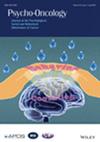"年纪轻轻就被诊断出患有这种疾病":对年轻成年人结直肠癌诊断经历的定性探索
IF 3.3
2区 医学
Q2 ONCOLOGY
引用次数: 0
摘要
目标直肠癌(CRC)的发病率在 50 岁以下的成年人中呈上升趋势(早发或年轻发病的 CRC)。这一人群在确诊时更有可能是晚期疾病,这表明他们的诊断路径可能会被延长。为了更好地了解影响这一诊断路径的因素,本研究探讨了患者在诊断为年轻发病型 CRC 期间的决策经验。方法对 17 名于 2021-2022 年在澳大利亚维多利亚州被诊断为年轻发病型 CRC 的参与者进行了半结构式访谈。访谈在确诊后平均 7 个月(1-13 个月)内通过网络或电话进行。分析从批判现实主义的角度出发,采用反思性主题分析法归纳出主题:结果确定了五个主题:紧迫感的转变、对角色的多维认识、充分利用资源、生活阶段以及 COVID 增加了复杂性。在诊断期间,参与者的决策发生了变化。当参与者意识到采取行动的紧迫性时,他们就会在决策中扮演更积极的角色,利用个人资源及时获得治疗。他们的决策受生活阶段性因素的影响,包括就业和照顾年幼的家庭,而 COVID-19 的流行又为决策过程增加了"......另一层复杂性"。医疗服务提供者/系统在诊断期间提供更多支持可能会提高 CRC 诊断的及时性并改善年轻成人的预后。本文章由计算机程序翻译,如有差异,请以英文原文为准。
“Too young to have this kind of diagnosis”: A qualitative exploration of younger adults' experiences of colorectal cancer diagnosis
ObjectiveColorectal cancer (CRC) incidence is rising among adults under the age of 50 (early‐ or young‐onset CRC). This population is more likely to have advanced‐stage disease at diagnosis, suggesting their diagnostic pathway may be prolonged. To better understand factors influencing this pathway, this study explored patients' experiences of decision‐making during a diagnosis of young‐onset CRC.MethodsSemi‐structured interviews were conducted with 17 participants with young‐onset CRC diagnosed in 2021–2022 in Victoria, Australia. Interviews were conducted online or by phone an average 7 months (range 1–13) after diagnosis. Analysis was approached from a critical realist perspective, with themes developed inductively using reflexive thematic analysis.ResultsFive themes were identified: Shifting Perception of Urgency, Multidimensional Perception of Role, Making the Most of Resources, Stage of Life, and COVID Adds Complexity. Participants' decision‐making evolved over the diagnostic period. As participants perceived urgency to act, they took on a more active role in decision‐making, utilising personal resources to access timely care. Their decisions were shaped by stage‐of‐life considerations, including employment and caring for a young family, with the COVID‐19 pandemic adding “…a whole other layer of complexity” to the process.ConclusionsYounger adults with CRC make decisions in the context of unique considerations, adapting to reduce time to diagnosis, with decisions complicated by the COVID‐19 pandemic. Greater support from health care providers/systems in the diagnostic period may improve timeliness of CRC diagnosis and outcomes in younger adults.
求助全文
通过发布文献求助,成功后即可免费获取论文全文。
去求助
来源期刊

Psycho‐Oncology
医学-心理学
CiteScore
6.30
自引率
8.30%
发文量
220
审稿时长
3-8 weeks
期刊介绍:
Psycho-Oncology is concerned with the psychological, social, behavioral, and ethical aspects of cancer. This subspeciality addresses the two major psychological dimensions of cancer: the psychological responses of patients to cancer at all stages of the disease, and that of their families and caretakers; and the psychological, behavioral and social factors that may influence the disease process. Psycho-oncology is an area of multi-disciplinary interest and has boundaries with the major specialities in oncology: the clinical disciplines (surgery, medicine, pediatrics, radiotherapy), epidemiology, immunology, endocrinology, biology, pathology, bioethics, palliative care, rehabilitation medicine, clinical trials research and decision making, as well as psychiatry and psychology.
This international journal is published twelve times a year and will consider contributions to research of clinical and theoretical interest. Topics covered are wide-ranging and relate to the psychosocial aspects of cancer and AIDS-related tumors, including: epidemiology, quality of life, palliative and supportive care, psychiatry, psychology, sociology, social work, nursing and educational issues.
Special reviews are offered from time to time. There is a section reviewing recently published books. A society news section is available for the dissemination of information relating to meetings, conferences and other society-related topics. Summary proceedings of important national and international symposia falling within the aims of the journal are presented.
 求助内容:
求助内容: 应助结果提醒方式:
应助结果提醒方式:


